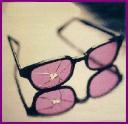91 Studies Support Confirmation Bias
Monday, July 6th, 2009 A recent large-scale meta study (study of studies) supports the confirmation bias or the fact that we are more likely than not to attend to information that supports our views rather than conflicts with them. More specifically:
A recent large-scale meta study (study of studies) supports the confirmation bias or the fact that we are more likely than not to attend to information that supports our views rather than conflicts with them. More specifically:
“The researchers found that people are about twice as likely to select information that supports their own point of view (67 percent) as to consider an opposing idea (33 percent). Certain individuals, those with close-minded personalities, are even more reluctant to expose themselves to differing perspectives, Albarracín said. They will opt for the information that corresponds to their views nearly 75 percent of the time.”
No surprise here for the cognitive designer. Interestingly, they found that people who are more confident in their views or see some value in opposing information (e.g. it will help them prepare to defend their views) are more open to opposing information. This provides a hint on how we might be able to design experiences to help avoid the corrupting power of the confirmation bias.





